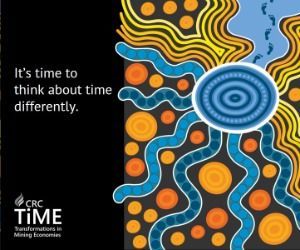1MG FlippingBooks
Capital Needed in an Innovation Nation
Yasser El-Ansary
The former Chief Executive of the Australian Investment Council, Yasser El-Ansary, notes that Australia is at an important crossroads, with capital demands not being met locally.

Expanding the investment pipeline and continuing to support the transformative power of innovation and technology must form the central pillars of a more dynamic and agile Australian economy over the decades ahead.
Jobs and industries rely on a steady flow of domestic and offshore capital to support investment into businesses across all sectors of the economy. Australia’s demand for capital continues to be greater than domestic supply and, as a result, the nation continues to be a net importer of capital. Private capital firms play a vitally important role in attracting both domestic and offshore investment capital, which ultimately flows into job-creating businesses.
The private sector, working in partnership with government, can be a powerful driver for innovation and technology-based transformation across the economy. To achieve that, we must use policy to support early-stage businesses in realising their potential across all of the key sectors of our economy.
When we look at the latest available rankings of economic complexity, developed by Harvard’s Center for International Development, they show that despite Australia’s high standard of living we still have much work to do to transition into a more knowledge-based, high-value-adding economy. The centre’s Atlas of Economic Complexity ranked Australia 87th globally – the lowest of all developed economies and lower than many developing countries. Since 1996, when the country was ranked 57th globally for economic complexity, it has dropped 30 places. In its analysis, Harvard University concludes that “compared to a decade prior, Australia’s economy has become less complex, driven by a lack of diversification of exports”.
It is therefore important that the economic challenges we face are recognised and tackled through leadership in long-term and visionary policy reforms. Industry has a role to play in informing and engaging with all sides of politics on these challenges.
There is much work to be done to transition and advance our economy because, quite simply, we haven’t kept pace with the development in complexity and technological transformation of other countries. The Harvard data confirm that. We must lift our economic productivity and competitiveness and invest more in skills and talent. These long-term policy shifts will position us to capitalise on the next wave of economic growth that is within our grasp. Australia’s geographic position within Asia provides us with an opportunity that other countries around the world would love to have.
Australia’s other comparative advantages must be exploited to the greatest extent possible. Key policy recommendations we believe supported the case for broader economic reforms were outlined in the AIC’s Roadmap to Recovery policy paper, released in June 2020. In our view, the three pillars of Australia’s future economic prosperity must be:
- maximising the penetration and utilisation of technology as an enabler of economy-wide productivity growth and job creation
- going “narrow and deep” in developing industries where Australia is, or could be, a world leader
- supporting our entrepreneurs and fast-growth businesses to create the next generation of world-leading businesses.
To realise the economic gains from the scaling-up phase of early stage businesses, it is imperative that initiatives are put into place now to support the ongoing investment needed to sustain and grow our innovation ecosystem. Core policy solutions that will help grow the pool of capital available to support investment into businesses and create employment opportunities for the future include:
- introducing a new public and private sector co-investment fund to support Australian entrepreneurs and fast growth businesses
- filling skills and talent gaps in the short term and building a training and education pipeline to support growth industries over the long run
- implementing reforms to lift the competitiveness of our taxation system and our capacity to attract offshore investment
- investing in hard and soft infrastructure to support the growth profile of the economy over the next two decades – utilising technology as a core enabler for the future
- fast-tracking the reduction of red tape and introducing greater efficiency to our regulatory environment.
The COVID-19 global pandemic was catastrophic for communities and economies all over the world. But in the words of Churchill, “Never let a good crisis go to waste”. Australia must be brave in the face of adversity and prepare now for a future in which knowledge and innovation will be the new currencies of leadership.
Yasser El-Ansary became the CEO of the Financial Services Institute of Australasia (FINSIA) in May 2022. Prior to that, he had been the Chief Executive of the AIC since November 2013.










